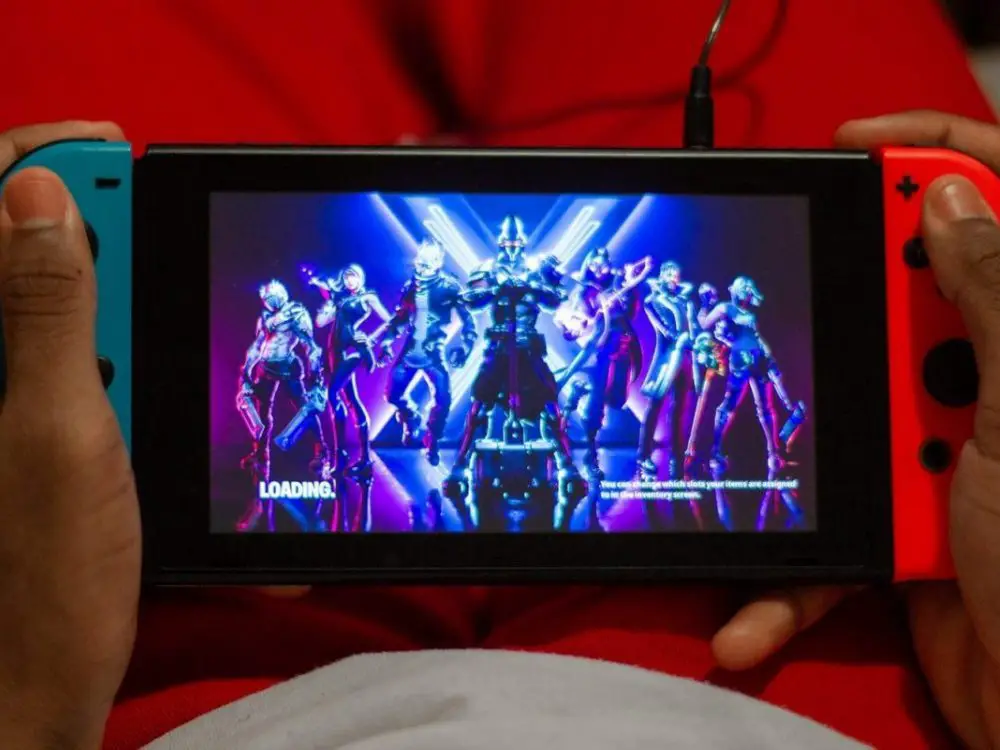Over the past 30 years, video games have skyrocketed in popularity. Hundreds of genres of video games have made millions of dollars in sales. Meanwhile, the esports industry is growing rapidly, with millions of dollars in prize pools and tournaments.
And, whereas the games were once seen as a diversion for children and young teenagers, video games are becoming more and more popular on college campuses.
The time college students in the past would spend in school-specific extracurricular activities is now being spent playing video games. One such video game that has taken college campuses and the internet as a whole by storm is “Fortnite.”
Released on July 25, 2017, by Epic Games, “Fortnite” quickly climbed the ranks of popularity amongst gamers, casual and competitive alike. It was originally released to be a co-op zombie game, but its secondary game mode raised it high above its genre. “Fortnite’s” online multiplayer battle royale game mode has transformed the game into a massive success story.
The battle royale genre, for those non-gamers in the audience, is essentially a “Hunger Games” scenario. Players start the game with nothing, forcing them to search the in-game map for weapons of varying quality and fight against other players.
The winner, of course, is the last gamer standing. Battle Royale games were largely popularized by the release of Player Unknown’s Battlegrounds (PUBG).
One could argue that PUBG — possibly one of the most successful game releases of all time — provided inspiration for “Fortnite”; however, it’s abundantly clear that “Fortnite” has overshadowed PUBG in the last four to five months since its full release.
In January, Epic Games reported over 45 million unique users were playing “Fortnite,” easily exceeding PUBG — not to mention basically everything else.
In addition, “Fortnite” has seen an incredible increase in popularity since that statistic came out. Without a doubt, that 45 million player number has drastically increased over the past few months.
What caused this sudden meteoric rise to the top? The reasons for “Fortnite’s” success are disputed, but there are a few factors that undoubtedly helped push it to the forefront. For one thing, “Fortnite Battle Royale” is free to play; this gave the game a leg up on almost every other popular game, for obvious reasons.
All the revenue Epic Games makes off of “Fortnite” comes from microtransactions for cosmetic items, which have no actual impact on the ability of players to win the game.
This makes the game even more popular; players don’t need to pay money in order to play or be on a level playing field. No matter how much you’ve spent, you have just as good of a chance to win as the next player.
Another reason behind “Fortnite’s” success? It’s available on a wider variety of platforms than PUBG. Also, while PUBG still hasn’t had a console release, “Fortnite” has been available on consoles for months.
It doesn’t end there, however; Epic Games is planning a mobile release to the full public in the near future. And even right now, players can register online to receive an early-access code of sorts.
Epic Games pushes out their free-to-play pop culture masterpiece to a mobile market with a high demand for free, addicting games has pushed them to the head of popular gaming.
Unsurprisingly, pop culture giants have jumped onboard the “Fortnite” train in rapid succession. Probably the best-known example of the “Fortnite” craze is the Twitch streamer, Tyler “Ninja” Blevins.
A relatively unknown streamer even five months ago, Ninja has become the most followed streamer on the entire Twitch platform, exceeding the second-place streamer by almost a full million followers.
Recently, he played “Fortnite” with JuJu Smith-Schuster of the Pittsburgh Steelers and artists Travis Scott and Drake; the stream shattered Twitch’s record viewer count, with 600,000 concurrent viewers on a non-tournament stream.
The internet more or less lost it, understandably; Drake is already one of the most recognizable celebrities out there, after all. Diving headlong into the biggest craze in the gaming world probably didn’t hurt one bit.
In addition, countless professional athletes have endorsed “Fortnite,” whether they directly mentioned it or simply appeared on the online multiplayer mode. Either way, by giving such an addicting game to such popular figures, Epic Games has found an incredible shortcut for marketing their game.
Kids see their favorite athlete playing “Fortnite” and it leads them to play. Furthermore, Epic Games retains old players through constant updates and additions, keeping the gameplay fresh for those who have played for a long time.
And of course, the level playing field of “Fortnite” and the consistent updates draw new players every day. Tapping into the vast ocean that is the mobile market will only increase the products those efforts.
Epic Games rode the battle royale wave the PUBG which popularized, yet quickly overtook it with a far more stable game. “Fortnite” focuses on execution rather than just the appeal of the concept; PUBG, on the other hand, just doesn’t have the technology to keep up with its concept.
The makers of PUBG never considered the difficulty of throwing 100 unique players into one map on a single server; naturally, PUBG didn’t stand a chance as soon as “Fortnite” came around.
Finally, PUBG had to spend most of its time fixing server issues or bugs and glitches in the gameplay; “Fortnite” was much more stable upon release. Because of this, “Fortnite’s” creators could dedicate their time to making consistent updates that kept the gameplay itself fresh and entertaining.
Epic Games did not, however, just carbon copy PUBG. Instead, they made “Fortnite” a unique gaming experience. There are tiered weapons, a mostly destructible environment and a building mechanic entirely exclusive to the game.
New features are added almost bi-weekly, keeping “Fortnite” incredibly fresh and interesting. Even better, social influencers have grabbed onto “Fortnite” and made it even more popular.
A public mobile release is in the works, opening the floodgates to an even more massive market of players seeking their first Victory Royale.
Not only has Epic Games made an incredibly successful game, they have made “Fortnite” arguably the most successful single game of the last decade. This unprecedented success is not only sustainable but growing. So grab your shield potions and legendary sniper rifles and enjoy a thrilling ride through multiplayer mode.
Who knows? You might run into Drake on a “Fortnite” server.

















